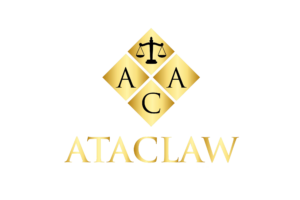Malice aforethought is a key element that the prosecution must prove in order to obtain a conviction for murder. It refers to a state of mind where a person intentionally causes the death of another person. In this blog post, we will discuss what malice aforethought is, how the prosecution can prove it, and the possible defenses that can be raised to negate a finding of malice aforethought.
How does the prosecutor prove malice aforethought?
The prosecution can prove malice aforethought in two ways:
-
Express malice: This occurs when the defendant has a deliberate intention to kill or cause serious bodily harm to another person. For example, if the defendant plans a murder and carries it out, this would be considered express malice.
-
Implied malice: This occurs when the defendant acts in a wanton and reckless manner, which indicates a disregard for human life. For example, if the defendant drives a car recklessly and kills someone in a collision, this could be considered implied malice.
What’s the difference between express and implied malice?
The main difference between express and implied malice is the degree of intent. With express malice, the defendant has a specific intent to kill or cause serious bodily harm. With implied malice, the defendant’s actions show a reckless disregard for human life, but there may not be a specific intent to kill.
How are deliberation and premeditation different from malice?
Deliberation and premeditation are not the same as malice, but they are often considered together. Deliberation refers to the act of weighing the pros and cons of an action. Premeditation refers to the act of planning an action in advance. Both deliberation and premeditation can be evidence of malice, but they are not required elements of the crime of murder.
How can the defense negate a finding of malice aforethought?
There are several ways that the defense can negate a finding of malice aforethought:
-
Self-defense and defense of others: If the defendant acted in self-defense or in defense of others, this can negate a finding of malice. The defendant must have reasonably believed that they were in danger of death or serious bodily harm.
-
Accident or reckless behavior: If the defendant’s actions were accidental or reckless, this can negate a finding of malice. However, the defendant’s actions must not have been so reckless as to indicate a disregard for human life.
-
Insanity: If the defendant was insane at the time of the crime, this can negate a finding of malice. The defendant must have been unable to understand the nature and quality of their actions, or to distinguish between right and wrong.
What is the law in Nevada?
The law of malice aforethought in Nevada is similar to the law in other states. However, there are some specific nuances that a Nevada defense attorney should be aware of. For example, Nevada law defines “wanton and reckless conduct” as conduct that shows a disregard for the safety of others. Additionally, Nevada law has specific statutes that deal with crimes such as first-degree murder, second-degree murder, and manslaughter.
If you are facing charges of murder or manslaughter in Nevada, it is important to speak with a qualified defense attorney.
Do you need a Self Defense Attorney in Las Vegas? "How do you beat a self defense charge in Nevada?" "When is use of force permitted for self defense?" What self defense weapons are legal in Las Vegas? If you needed use of force during an act of self defense, and are now facing charges: We have answers for you To learn more about self defense charges in Las Vegas and how to get your self defense charge dismissed or to discuss a particular criminal case that you or someone you love is facing, Call ATAC Law firm for help to get your charges reduced or dismissed. Contact us for a FREE phone meeting to discuss your case with what people are calling the best criminal defense attorney in Las Vegas. At ATAC, our Las Vegas team of lawyers is here to work with you to help you through your case. For Nevada Revised Statutes (NRS) related to legal matters, including sex crimes, fraud charges, DUI charges, domestic violence, and non-homicide self-defense, you can visit the official website of the Nevada Legislature or consult legal databases specific to the state. These resources will provide you with the most up-to-date and accurate information on the relevant statutes.
If You’re Facing Charges, We’re Here To Help.
 Call us for help
Call us for help
